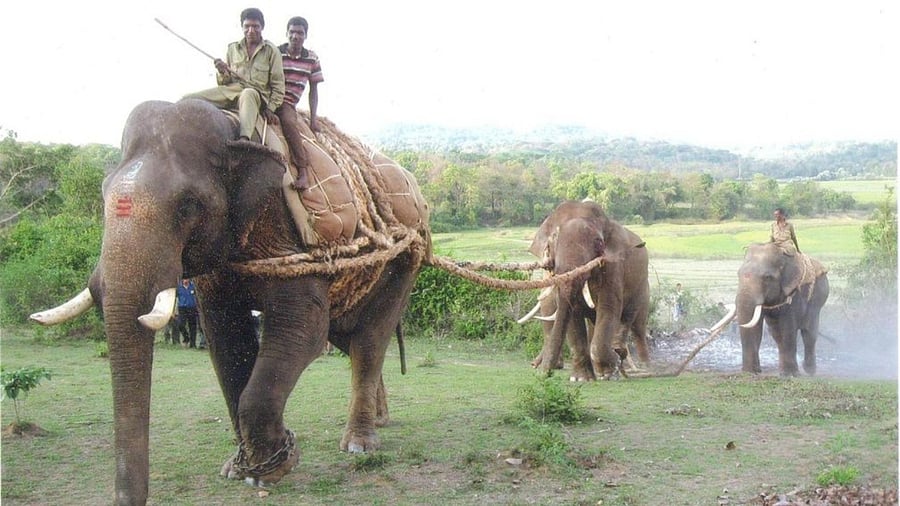
The abundance of water and edible plants in the coffee plantations of Kodagu and Hassan attract wild elephants. These districts also have herds of elephants that are born and grown up in the coffee estates and paddy fields. Their ancestors came to this place and settled here after natural habitats and corridors were disturbed. Locals have observed that the food habits of these elephants are centred around cultivated crops like bananas and jackfruit. National Board for Wildlife Member Raman Sukumar says that their feeding habits have changed completely and life back in the forest is going to be difficult now.
Despite the conflict, the locals have developed an attachment and fascination towards these elephants and have even named some of them. “We can even smell elephants,” N B Uday Kumar, a member of the coffee board says. What makes them feel helpless is when these elephants stand outside their houses for hours seeking food. “We know whatever we have in store will not satiate their hunger. We feel sorry for them but we need to live too,” says Uday.
